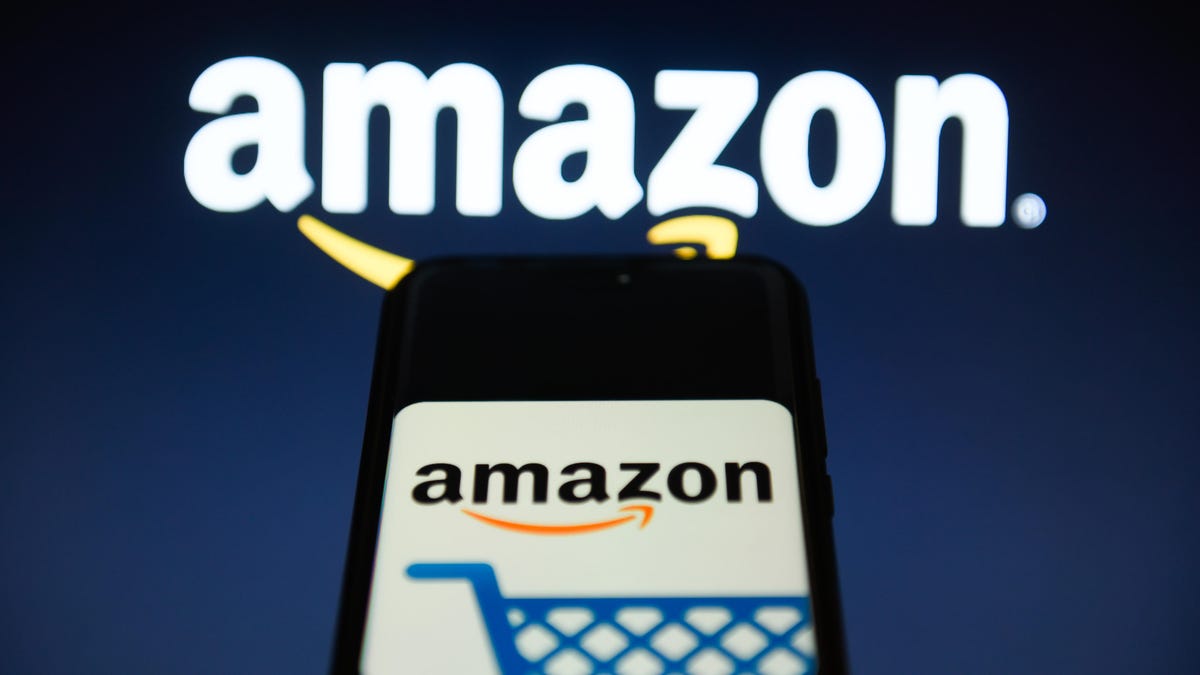 Why You Can Trust CNET
Why You Can Trust CNET Amazon profits halved amid slowing sales growth
The company is still very profitable.

Amazon's profits fell significantly for the first time during the pandemic, the company reported Thursday.
Amazon reported on Thursday a steep drop in third-quarter profits amid slowing sales growth and indicated that the next quarter would also be tough for the e-commerce giant.
Net sales during the July-September quarter climbed 15%, to $110.8 billion, but missed forecasts of roughly $111.81 billion, according to numbers from Bloomberg. The results did, however, fall within the $106 billion to $112 billion range Amazon had forecast.
Earnings per share plunged more than 50%, to $6.12 per share. Amazon stock went down in after-hours trading, dropping more than 3.75%. The company's stock closed at $3,446.57 during regular trading. The company was a profit juggernaut in 2020, when consumers sought to avoid stores as the pandemic reached its height.
In a statement, Amazon CEO Andy Jassy said the company had worked hard to keep offering its services while demand surged during the pandemic. That demand added significantly to Amazon's sales through 2020 and the start of 2021, but it also involved big expenditures, Jassy said.
"It's driven extraordinary investments across our businesses to satisfy customer needs -- just one example is that we've nearly doubled the size of our fulfillment network since the pandemic began," he said.
Looking forward to the end of 2021, Jassy predicted Amazon's spending will remain high because of the labor shortage currently faced by the logistics industry in the midst of a global shipping slowdown. The company intends to get through the holiday season without delays in orders or extra costs to customers and third-party sellers, which Jassy said won't come cheap, adding, "it's the right prioritization for our customers and partners."
In a call with investors, Amazon Chief Financial Officer Brian Olsavsky said high starting wages and signing benefits for warehouse workers are driving labor costs. Despite having increased the company's ability to fulfill orders with more warehouse space throughout the country, a lack of workers is holding Amazon back from taking full advantage of those resources.
"Labor became our primary capacity constraint," Olsavsky said, adding that Amazon had to reroute many goods to warehouses that were fully staffed during the third quarter.
Amazon Web Services, the company's cloud hosting segment, grew substantially in the third quarter and brought in $4.9 billion in operating income. The company's advertising business, which includes revenue from paid posts that show up when shoppers enter search terms on the Amazon marketplace website, also showed considerable growth, of 50% year over year.
Amazon and analysts had forecast a slowdown as COVID-19 lockdowns, which encouraged online shopping, were lifted over the summer. In the previous quarter, which ran from April through June and also saw looser COVID-related restrictions, Amazon missed analysts' revenue predictions.

